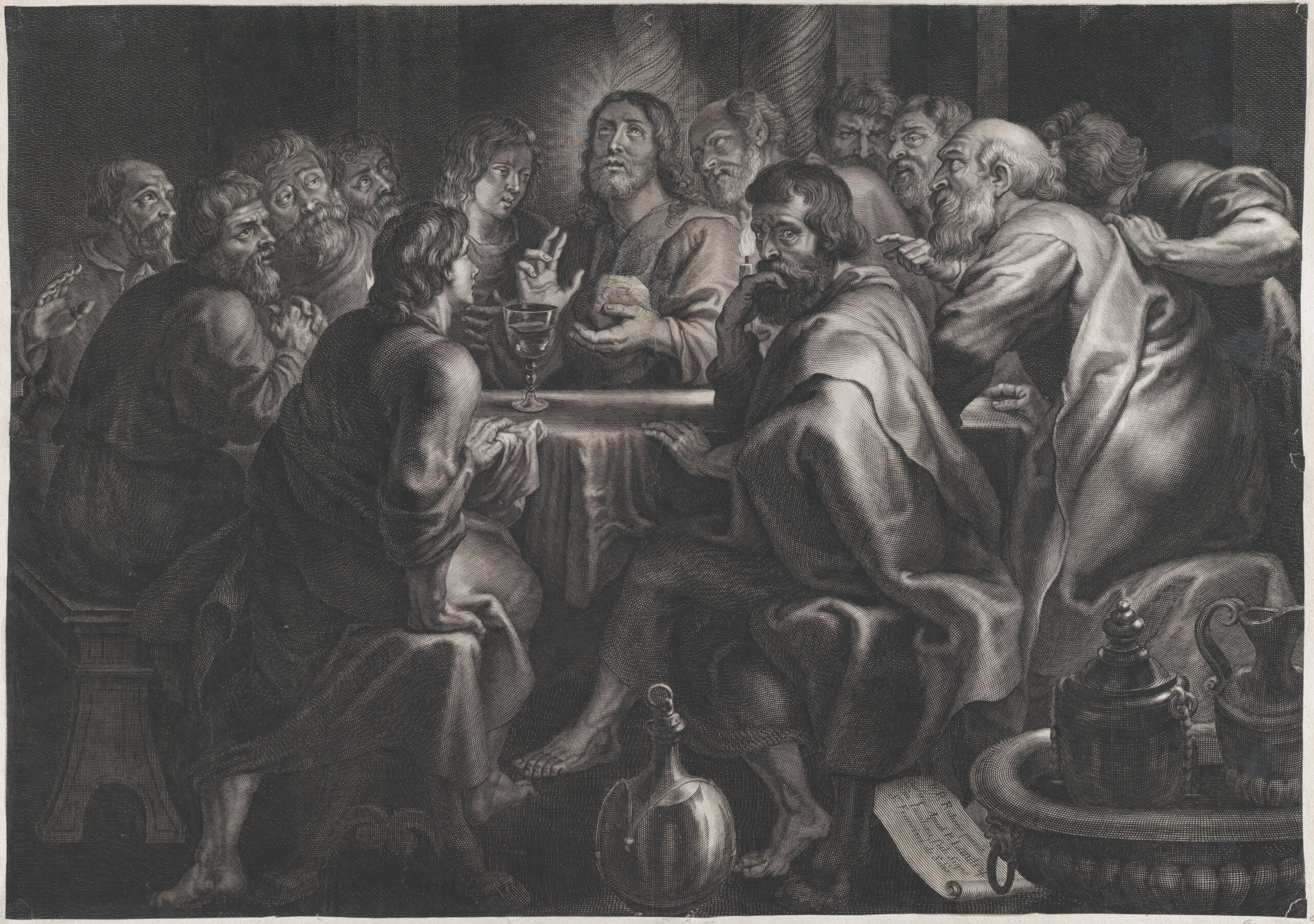
With the Last Supper Mass coming this evening, we ought to briefly reflect on the significance of this beginning to the Sacred Triduum. Obviously there’s a lot that we know happened at the Last Supper: the High Priestly prayer of Jesus Christ, the washing of the feet, the issuing of the New Commandment. So much we could dive into! But what the Last Supper Mass this evening really focuses in on from the Last Supper is the institution by our Lord of the two sacraments of the Eucharist and Holy Orders.
The Last Supper was the first ever celebration of the Eucharist, His making present of the offering of Himself in sacrifice under the appearances of bread and wine. “This is my Body, My blood”, so our Lord says. Very simple, nothing figurative or symbolic about it. Which is why Jesus also says, to the apostles, that He desires to eat the pasch with them – because the Last Supper was to be the first time that He would give Himself to the apostles in Holy Communion, for that most intimate of unions. The Eucharist being the greatest sign of the love of the Sacred Heart of Jesus – not simply that He became man, as great of a sign of love as that is; not simply that He became man and died on the cross for us, as great of a sign of love as that is; but even moreso that He became man and died on a cross for us and further still gives Himself to us under the most humiliating appearances of bread and wine, just so as to be with us.
Relatedly, if there is going to be the sacrifice and sacrament of the Eucharist, then there likewise need be a priest to offer that sacrifice and confect that sacrament. So as the Council of Trent notes, our Lord’s exhorting of the apostles to “do this in memory of me” – “this” being the offering of His body and blood – is the moment in which He ordained them priests. This ordination is the conferral of power upon the apostles to offer the Eucharistic sacrifice and sacrament, power which is desperately needed for this. For the Eucharist – the Body, Blood, Soul, and Divinity of Jesus Christ, under the appearances of bread and wine – is not the consequence of any mere human act, for no mere human could cause such a change in bread and wine. The Eucharist is, rather, an act of grace, a grace that comes by way of conforming to, sharing in, the priesthood of Jesus Christ Himself.
As the Mass of the Last Supper concludes this evening, we recognize that our Lord has begun His Passion. He goes off from the upper room to the agony in the Garden, for example. To commemorate that, the tabernacle will be emptied and the altar is stripped upon the conclusion of tonight’s Mass – the symbols of Christ presence are removed, as our Lord is shortly to be “removed”, so to speak, from the world through His death the next day. The joyful signs of His Presence won’t return until Easter begins with the Easter Vigil Mass on Saturday evening. In the meantime, the ciborium with remaining Sacred Hosts is taken to the “altar of repose” (a side altar of the Church, the parish hall if there are no side altars, etc), wherein we now try to keep vigil with our Lord in prayer, especially given that Peter, James, and John were unable to during our Lord’s agony in the Garden.

